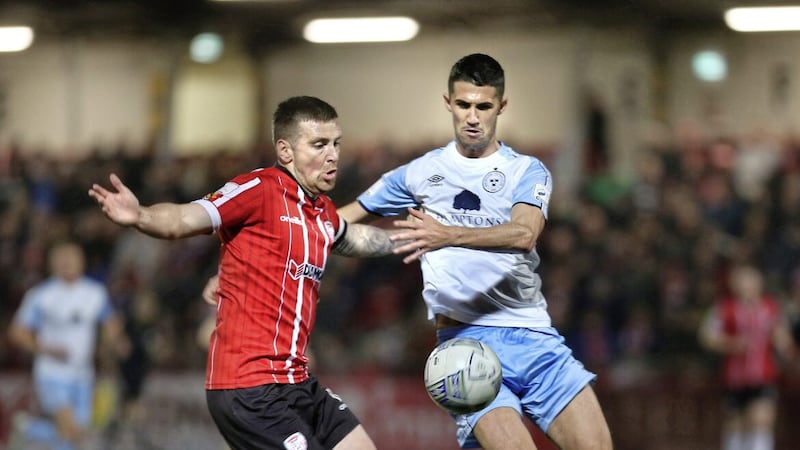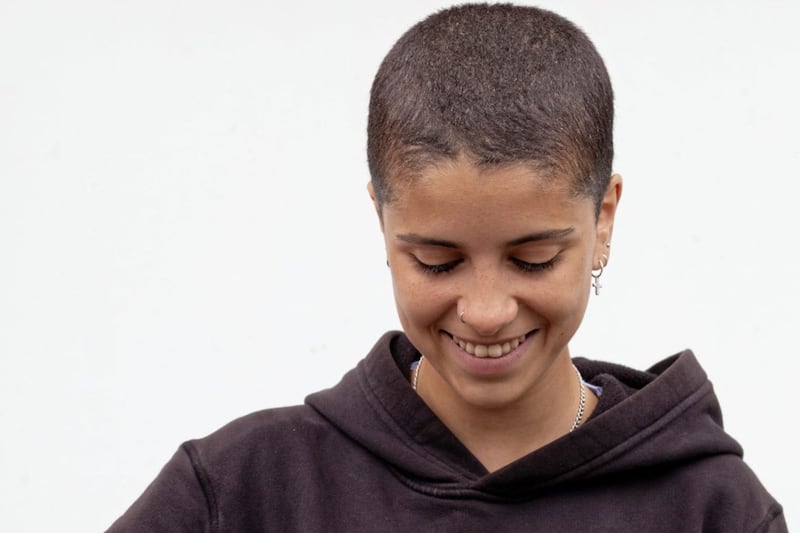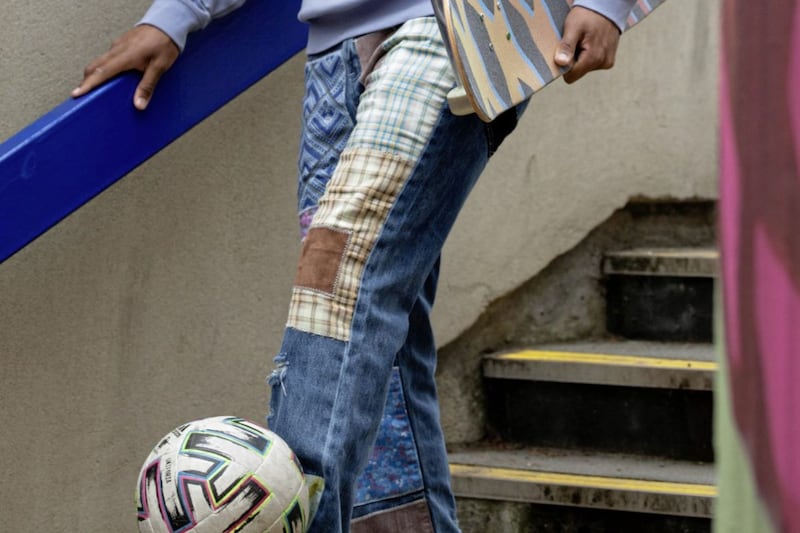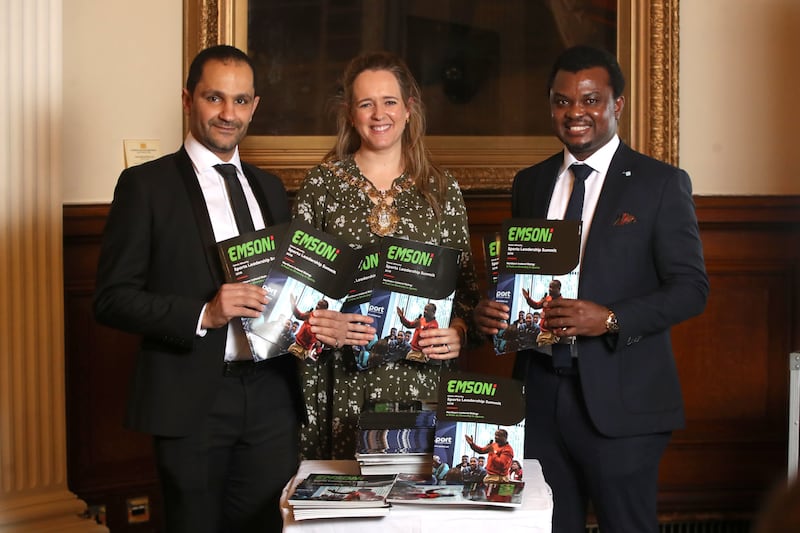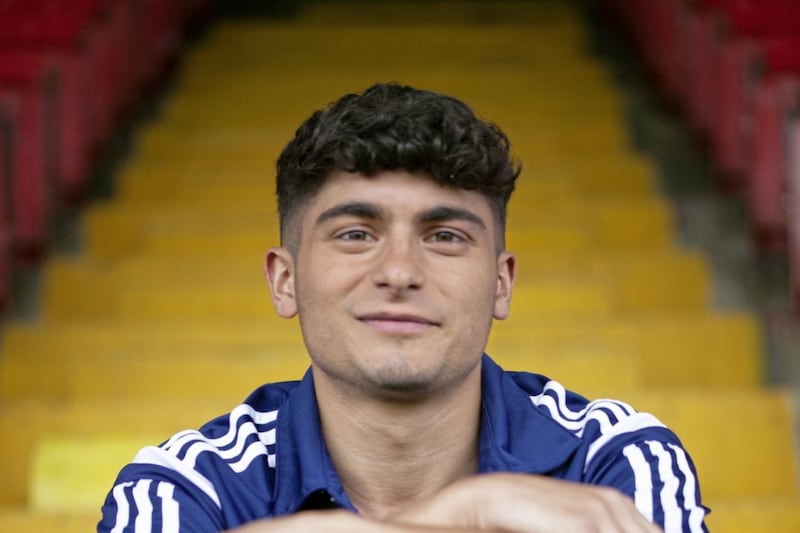HE may have changed his own name, shortened it to make life easier. But to be called 'Taliban', by his own youth soccer coach to boot, was beyond the pale.
'Ross Tharma' is considering becoming 'Ross Tharmaratnam' again, fully embracing his south Asian heritage. His dad's from Malaysia, of Sri Lankan heritage; his mum's English.
An older brother, Cameron, has made the short film 'Where You Really From?' along with Charlie Rollins, featuring Ross and two other former NI youth soccer internationals, Aaron Brown and Rosie Zubier.
Aged 20, Ross is studying Business Management at university in Manchester now, saying with a laugh: "It’s all right, probably not for me, but I’m three years in now, so… I can’t cash out at this point!"
Let's skip to the worst bit.
A talented footballer, Ross moved from Glentoran to Nottingham Forest and became a Northern Ireland youth international.
On one trip abroad, however, he was subjected to scandalous humiliation - by his own coach.
"He nicknamed me 'Taliban'. Then as we were getting on a plane, he pointed to my seat and shouted 'Oh! He's got a bomb! He's got a bomb!'
"I was 14, turning 15. It was nervous laughter at first, from everyone. Then it kept going all weekend. Team-mates are coming up to you, going ‘That’s not all right, this is out of hand’. But you don’t really know what to do when it’s someone with that much authority and you’re 14-year-olds.
"It’s difficult. You don’t really know how you can deal with it without affecting yourself.
"In the end, I didn’t say a word. It wasn’t that it really upset me, it was just uncomfortable. I didn’t have a good relationship with the guy, I just didn’t like him.
"All the parents who were on the trip with us, who had overheard it on a few occasions, ended up reporting it. We settled it between my family and himself.
"I wasn’t upset by it, I was uncomfortable and didn’t like him. It was a difficult one to deal with without hindering my own potential progress in that team.
"I just wasn’t upset by it, I just thought he was a dick."
Growing up in Holywood, "for me it was very good in regards to racism. I was fortunate, Holywood’s a nice place and I had very nice people around me a lot of the time. The narrative wasn’t that ‘It was terrible, I experienced a lot of bad things’; it wasn’t like that.
"There were just a couple of things, which I mention in the film, were the only really low points, bad occasions."
Despite that reasonably fine childhood, he did feel the need to shorten his surname, as he explains:
"I was about 13, 14, just decided to shorten it on everything. It was just easier for everyone else. Constantly, anything I was doing, school or whatever, they’d say ‘Ross…’ and then they wouldn’t know what to say next. It would be said completely wrong.
"I like the shortened version, I like 'Tharma', and my dad has always gone as Dr Suresh Tharma, so it was kind of natural to me.
"I’m probably going to start using my full name a bit more now, I feel I’ve embraced it a bit more."
Ross is quite relaxed about that, understanding: "I get it - people see that word, it’s 12 letters long, they’ve no idea where to start with that, so I got ‘Ross’ a lot, or a terrible attempt. It became shorter over time.
"I didn’t actually feel uncomfortable, not most of the time, because it is such a long word. For people who’ve never seen it before, I just expect that. I was never offended or anything like that. I was so used to it, whenever someone was calling my name I was ready to say ‘Here’ or whatever. It wasn’t something that bothered me."
However, other name-calling was much worse.
"When I first signed for Glentoran, about 12, and people calling me a ‘Paki’ or saying ‘You’re Muslim’. That just came down to mis-education. They had no idea what they were talking about. Even I didn’t really know what they were talking about at that age.
"The way forward, and partly why we’ve done this film, is to educate people. It’s not to call everyone out who has been racist in the past. It’s to help people understand the issue and give exposure to what’s been going on.
"I was signing for Glentoran from a posh family from Holywood. I didn’t really fully fit in straightaway, so that all played into it. The first year wasn’t great, it was a bit tough.
"After that, I ended up embracing it, I’ll be the first to admit that. It’s not the right thing to do but I played into it a bit for the next years - but then you grow up and realise that it’s not really OK.
"People would make jokes and I would just joke along. I wouldn’t be calling people up on it. That was just because I was 14 and didn’t really know how to deal with it."
Now in his third year in Manchester, he's loving life there: "It is just so much more multi-cultural. There are people from all over the world in Manchester, especially , and London. I really don’t see any divide in day-to-day life.
"You’re such a minority in Northern Ireland when you’re coloured or mixed, I don’t see that in England, at least from my experience.
"There are probably as many international students as there are locals. It’s crazy, a lot on my course are Asian, Chinese; there’s no discrimination that I’ve noticed. It is still there - and it’s obviously there in football."
The racial abuse directed at the three (black) England players who failed to score during the Euro Final penalty shoot-out was terrible, yet perhaps brought some positive, feels Ross:
"What happened at the Euros last summer was extremely sad, but it was also important, because almost everyone in the UK, whether a football fan or not, was watching to see if England would win a major tournament.
"In the end, that platform put a spotlight on how huge the issue is, it came out for everyone to see. It is definitely still there, of course.
"Because that was so public, everyone saw what happened. It would have been eye-opening for quite a lot of people, who didn’t realise. A lot of people probably thought ‘Something needs to be done about this’, so that was good to see.
"When it comes to heritage, that England team, over half of them their parents weren’t from England. A lot of them are of African or Jamaican descent. It’s just completely ridiculous."
The film's aim is to "educate people, help them understand the issue. Really to just give some exposure to what’s going on in Northern Irish football. It’s something that is not spoken about enough in the mainstream media. I don’t think people even realise it’s going on.
"Me, Rosie, and Aaron are just completely regular people. Hearing that this is going on in day-to-day football, people might think about it a bit more. That’s the hope.
"The last census, 2011, NI 98 per cent white. That creates an issue itself. It’s not still that, but it is a massive majority.
"That’s why there’s nothing being done, no TV being made about it. The majority of people have allowed it to happen. We’re hoping to be the people who give some exposure to it.
* In tomorrow's Irish News, the stories of Aaron Brown and Rosie Zubier.

